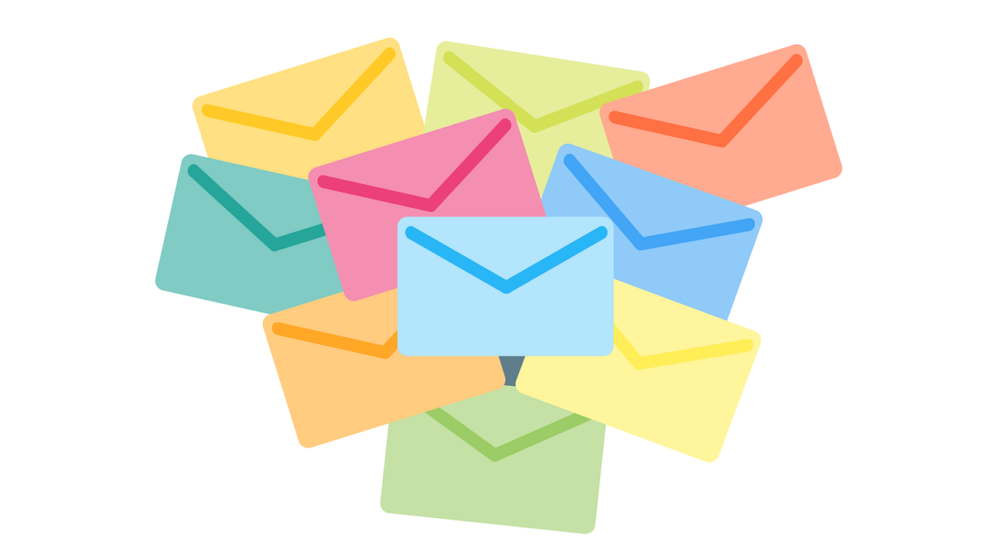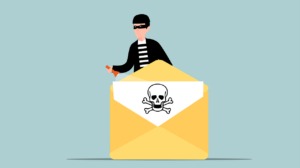Building an Effective Email Marketing Strategy
With the intense focus on newer digital marketing strategies, it can feel like email has become the old guard. The strategic backbone since the dawn of internet marketing, email marketing is actually stronger than ever.
Email marketing has not been overtaken but rather supplemented. It can now anchor newer approaches like social media and content marketing strategies in a cohesive experience. In many ways, email is steadily increasing its ROI.
Small businesses and startups must employ email marketing within their integrated marketing strategy if they hope to grow. This beginner’s guide to email marketing will outline key benefits, step-by-step execution and best practices. Through these principles, your email strategy will continue to boost your web traffic generation, potential customers and bottom line.
What Is Email Marketing?
Email is undeniably the most profitable digital strategy, beating out SEO, content, PPC and social media for highest ROI. Email marketing consists of any marketing communication sent to prospects and customers via email.
Email marketing is the centerpiece of many lead generation and lead nurturing campaigns. It connects businesses to audiences, converts customers and fosters ongoing interaction and healthy relationships with brands.
More than simple spam messages for disinterested audiences, emails are integral factors in each stage of the sales process. Companies can use email providers and marketing automation services to better segment customers in lists. They can target customers for several different reasons, like promoting brand stories, addressing cart abandonment and encouraging repeat business.
Email marketing involves regular communication with leads and customers to increase sales. Messages are normally sent according to established schedules to contacts on an email list. They may also go out in response to user actions, like filling out a lead magnet form.
With new email and CRM tools, building custom email lists and targeting customers is easy. Marketers can now push more relevant material to engage specific customer groups.
Why Is Email Marketing Important?
Email is the most effective driver of lead generation and customer retention. There are numerous benefits of email marketing, all contributing to brand and sales growth.
1. It is the most used communication medium
With over 4 billion users worldwide, email is the most prevalent form of communication. Social media and all other communication platforms do not get close to the adoption rate of email. That does not appear to be changing either, as email will only continue to rise in popularity.
2. You control your contacts
Social media and many marketing engines have rules for users to follow. Deviating from their guidelines can result in suspension or restrictions, seriously affecting your ability to reach and market to contacts. With email, you have total control and ownership of your contact lists.
3. It converts better
Email converts better than any digital marketing effort, even more than social media and organic search. It has the highest ROI among marketing tactics for small businesses and is the most effective lead generator.
Getting Started with Email Marketing
The research-based process of implementing email marketing is similar to many other marketing strategies. While each campaign will have its nuances and unique objectives, they should all follow this basic framework.
Step 1. Develop a Plan
Create your plan by first defining your target audience and marketing objectives. Without detailed segmentation and clear goals, you may stretch your efforts too broadly, costing more money with little ROI.
Determine where you will provide opt-in opportunities and develop a plan to track the performance of those sources. This will help you adjust and prioritize your marketing channels more effectively.
Start putting together a content plan, outlining what you will write about for your audience. Set a plan for how frequently you will send each piece of your email series. You may want to do this as a daily check-in or you could do a weekly or monthly email blast.
When you know your frequency, you are ready to schedule your campaigns and posts. The schedule needs to be practical for the resources you have. Lack of consistency and predictability does not reflect well on the authority of your brand.
Step 2. Create Your Emails and Templates
Emails need to be scannable, so try to avoid big blocks of text. Get your main points out first so the customer gets the key takeaway with little effort. With strategic visuals or highlighted and bold text, you can highlight important details and keep the user engaged.
Step 3: Test Emails
Messages developed with marketing automation services can render differently depending on the email service provider. After creating your emails, test them on different clients both on desktop and mobile devices. Send them to team members or friends to get extra eyes on errors and possible augmentations.
During campaigns, using A/B testing can compare the effectiveness of different email components. Test variables like send times, subject lines or CTAs to see how you can maximize open and click-through rates.
Step 4: Leverage Marketing Automation
Marketing automation lets you set up your schedule and let the program run itself. You can set rules for sending introductory or follow-up emails to ensure proper distribution.
With these marketing packages running your various campaign schedules, you gain time to create content and focus on strategy. There are a growing number of free and paid resources available online to take over much of the burden. When you know your goals and schedule, you can make better decisions around the tools you need.
Step 5: Track Performance
Ongoing research and tracking to continually enhance your approach is the key to success. The following are some of the metrics to prioritize when assessing your email campaign’s performance:
- Open rate
- Click-through rate
- Bounce rate
- Unsubscribes
- Conversion rate
- List growth rate
- Contact complaints
- Sharing/forwarding rate
Of course, ROI is the major metric to track. Track how many sales originated from emails and divide their value by your campaign costs. The potential ROI of email is massive, so even positive returns likely have room for improvement.
How to Create an Email List from Scratch
When you are just starting out, you need to establish key features that aid in building email lists. The following resources are non-negotiable must-haves for creating usable lists.
1. You must understand your audience
Buyer personas are critical sales prospecting elements, and they are equally important when crafting prospecting emails. These ideal customer descriptions detail their demographic, behavioral and attitudinal characteristics.
Personas give you insight into where these customers exist in online spaces. Social media is a major area of focus. You will know exactly where to put lead generators once you know what platforms your target audiences predominantly use.
2. You must have a website
A website is your brand’s base, the area where your potential customers can gather and engage with your business. Websites are not only useful lead generators but also a valuable next step in driving conversion after email interactions.
With the number of online builders available today, you need zero technical coding knowledge to create a beautiful website. Services like WordPress, Wix and SquareSpace facilitate hosting and offer visual builders to easily configure web pages.
3. You need an email marketing service
Automation is critical for any email marketing campaign. Services like Mailchimp, Constant Contact and Infusionsoft give you a platform to organize, schedule and auto-send targeted email. The best email services scale to meet expanding needs as you start to enjoy growth from your beginning efforts.
4. You must have an enticing offer
Emails need to be earned. Consumers know they have value and will demand equal or greater value to give them up.
Your lead generators need to offer something useful for the target audience. If you run a B2B business, you can offer exclusive gated content like industry-related ebooks or event invitations. B2C companies may offer coupons or free trials with sign-ups.
Examples of Companies with Excellent Email Marketing Campaigns
Drawing inspiration from industry leaders and competition is a great way to see how they engage audiences with email. Visiting competitors’ landing pages and subscribing to offers gives you a first-person perspective on effective email marketing techniques.
The following are some exceptional examples of leading businesses creatively optimizing their email marketing strategy.
1. TheSkimm – Subscription Anniversary
TheSkimm is a thriving current-events and business newsletter targeted at millennial women. Known for their customer retention, TheSkimm found a successful formula in their anniversary celebrations for individual subscribers.
Subscribers are rewarded for hitting certain milestones and subscription anniversaries with unique and exclusive offers. They stay more engaged in anticipation of the next anniversary and less likely to unsubscribe.
2. Uber – Calendar Integration
Uber has benefited from simple design and clear CTAs in building brand consistency and increasing conversion. By primarily emphasizing major deals in emails, it makes it easier for users to sign up and stay connected.
Uber has taken speed and efficiency to the next level with machine learning. With new calendar integration tools, users can sync email, contacts and other resources to quickly schedule rides. Users do not have to search for addresses and schedule pickups. The app predicts needed rides and destinations to create easy shortcuts based on when users log in.
3. Birchbox – Co-Marketing Promotion
Birchbox latched onto the subscription box craze, carving out a neat little niche in beauty and self-care. Through partnerships with a variety of manufacturers, they are able to promote their products while giving customers a wide range of customization options. Their win-win mindset extends into their referral business, as they found winning strategies in rewarding customers for sending them business.
4. Postmates – New Product
Postmates covers an exhaustive array of products with their expedited delivery service. Like Birchbox, Postmates creates mutually beneficial partnerships to supply their service. In highlighting product updates, Postmates provides marketing benefits to companies and purchase opportunities to customers.
Final Thoughts
Beginning your email marketing strategy with these tips can turn novices into email pros in no time. It is hard to exaggerate what that will do for your business. With even a basic email marketing structure in place, lead generation, conversion and customer retention will undoubtedly improve. And as you grow, your email marketing will seamlessly transform as well, increasing its ROI at every step. For more information on how to create a powerful email strategy, contact our team today.





